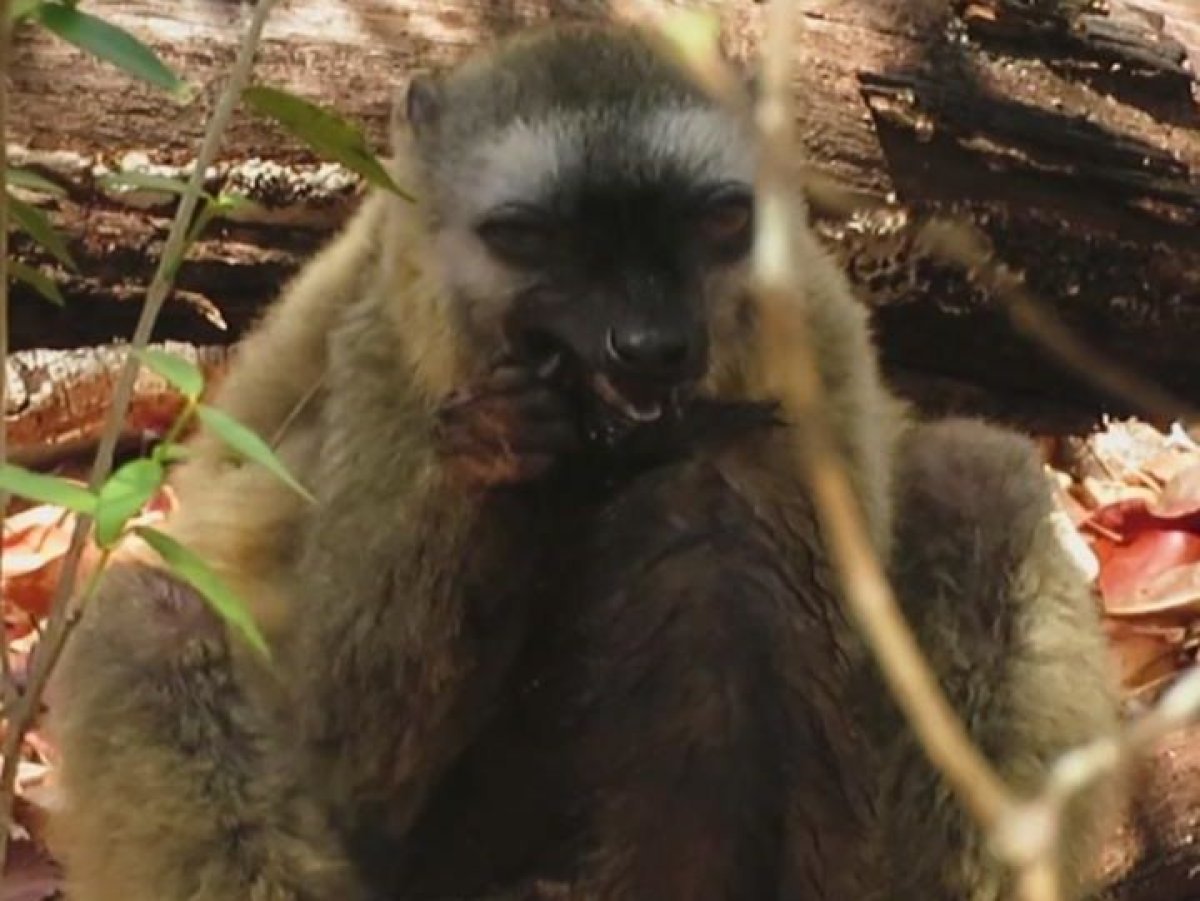The natural world is full of organisms with medicinal properties harnessed by humans. But other animals have also worked out how to make use of these resources.
In a study published in the journal Primates, researchers have described how lemurs chew on millipedes to treat and prevent conditions, such as itching and weight loss, that are caused by parasites in their guts.
A team led by Louise Peckre from the German Primate Center at the Leibniz Institute for Primate Research studied five groups of red-fronted lemurs (Eulemur rufifrons) in Kirindy Forest on the African island of Madagascar.
During their observations, they noticed that several of the animals were chewing on millipedes—an act that produced large amounts of an orange-colored substance that was probably a mixture of saliva and the millipede's bodily secretions.
After chewing them, the lemurs then rubbed the millipedes on their genitals, anuses and tails. Some of the lemurs even ate the millipedes.
Lemurs, and several other mammal species, are known to rub objects, substances or materials over certain body parts in a behavior known as self-anointing. The purpose may be to communicate with others, remove toxic substances from food, or self-medicate.
"Self-anointment combined with eating millipede secretions may be a way of self-medication by red-fronted lemurs," Peckre said in a statement.
Millipedes contain a substance known as benzoquinone that, among other things, is a natural mosquito repellent. The lemurs could be using the millipedes to clear out parasites living in their gut. One culprit could be Oxyuridae nematodes—a group of parasitic worms known to cause rashes and irritation around the anus.
"Strikingly, during the fur-rubbing observations, we noticed the presence of bald areas on the lower back of many animals," Peckre said. "These are known as sit spots and are likely caused by repeated rubbing. These bald areas may then indicate the presence of infections by Oxyuridae in the population at the time."
It is also possible that the lemurs are using the millipedes to prevent parasites appearing, as well as simply getting rid of them.

Lemurs are not the only animals known to rub themselves with, or eat, millipedes. In fact, a number of bird and mammal species have been observed engaging in the behavior.
Millipedes as a group produce an impressive arsenal of chemicals, which they use to defend themselves from predators. These substances—which include various acids and alkaloids—can act as sedatives, repellents, irritants and may even be toxic to other animals.
Uncommon Knowledge
Newsweek is committed to challenging conventional wisdom and finding connections in the search for common ground.
Newsweek is committed to challenging conventional wisdom and finding connections in the search for common ground.
About the writer
Aristos is a Newsweek science reporter with the London, U.K., bureau. He reports on science and health topics, including; animal, ... Read more
To read how Newsweek uses AI as a newsroom tool, Click here.








